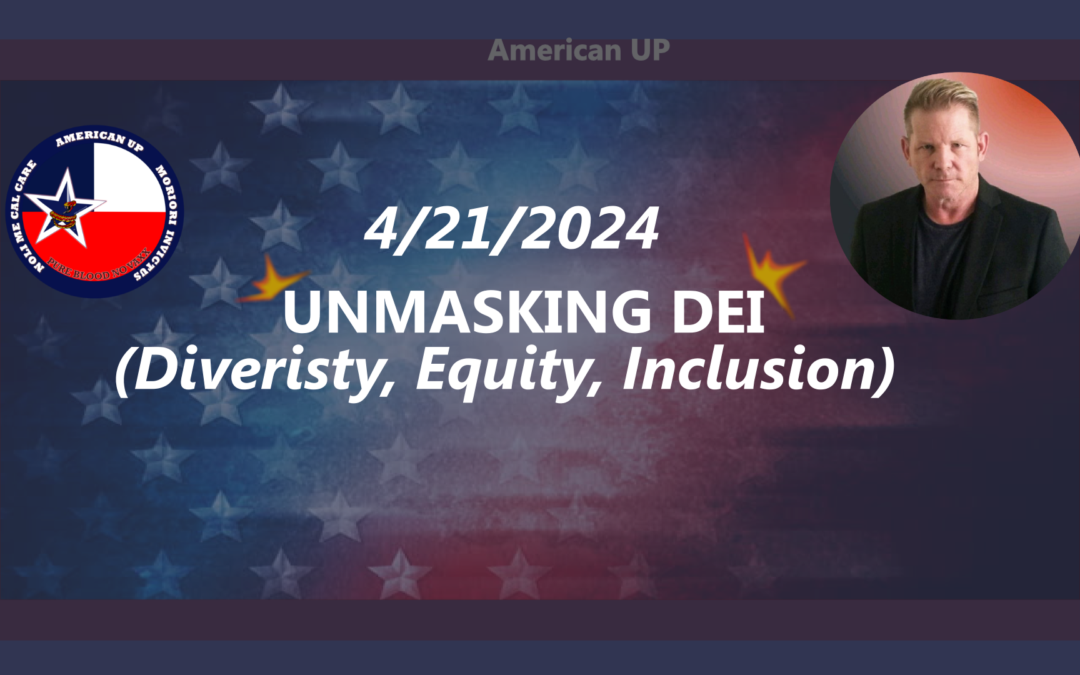Diversity, equity, and inclusion (DEI) are organizational frameworks that seek to promote the fair treatment and full participation of all people, particularly groups who have historically been underrepresented or subject to discrimination based on identity or disability.
In the present era, there has been a notable surge in the favorability of Diversity, Equity, and Inclusion (DEI) endeavors. These endeavors have garnered extensive approval and have extended their reach to encompass nearly every facet of our everyday existence, such as employment, education, and interpersonal relationships. Nevertheless, individuals need to be made aware of the meaning of DEI, its importance, and its influence on our community. It is crucial to acknowledge that DEI is essentially a rebranded version of socialism, representing a modern and administrative interpretation of socialism.
The concept of DEI (Diversity, Equity, and Inclusion) mirrors the principle of communism, “from each according to his abilities, to each according to his needs,” which was prevalent during the era of Karl Marx. This philosophy emphasizes the importance of fair allocation and distribution of resources while also utilizing differentiation to accomplish its objectives. Understanding DEI efforts requires recognizing that equity is the driving force behind them. Equity serves as the primary objective of all DEI programs, aiming to compel diverse groups of individuals to achieve a “fair” redistribution of resources, status, and wealth based on neo-Marxist Identity Theories such as Critical Race Theory. Equity represents a managed political system in which allocations are adjusted to ensure equality among citizens, including social and cultural capital. Essentially, it signifies an extension of socialist principles. Once we grasp the essence of equity, the intentions behind “Diversity” and “Inclusion” initiatives become evident.
“The idea of “Diversity” is a deceptive plan. Its main objective is to place people with the same political views in organizations to implement policies promoting equality. These individuals, known as “Diversity Officers,” are similar to the previous concept of commissars
If you are unfamiliar with Commissars
Commissars were individuals functioning independently from the military chain of command. They were a link between the party and the regular troops, disseminating political messages and quelling any potential discord.
Commissars were responsible for overseeing communist political propaganda and instilling the public with communist ideology. Starting from 1917, the Bolshevik administration, similar to the preceding Provisional Government, depended on seasoned (former Tsarist) army officers despite harboring doubts about their loyalty—much like the Diversity officers within Corporate America!
(As mentioned above) who similarly enforced socialism. Understanding the real nature of Diversity in this context is easy, but how did we get here in America? The answer lies in the judiciary’s flawed interpretation of Civil Rights laws, which prioritizes the notion of “disparate impact” over intention as evidence of discrimination.
The Marxist Roots of DEI
Diversity, Equity, and Inclusion initiatives have taken over the country, reaching into every aspect of our work, school, and lives. In pushing for equal outcomes, equity is deeply delusional. The first delusion is that 100% can be the top 1%.
The constraints of scarcity and efficiency necessitate equity to provide the minimum acceptable level; this is the sole method to ensure equal results. It is not coincidental that benchmarks decrease when equity precedes merit. Once more, the optimistic pledge of equity is an illusion; equity ultimately hinders our progress.
Equity, as an unsuccessful illusion, fails to produce the intended results and to fulfill equity’s pledges, equity openly appropriates. It is no shock that Marx recognized long ago that achieving Communist Liberation necessitated the abolition of property rights – in other words, state-endorsed confiscation. However, equity also involves confiscating accomplishments, contributions, and personal rights.
The principle of “Inclusion” plays a vital role in implementing the “Diverse and Equitable” commissar system. (As mentioned prior)
However, it is crucial to acknowledge that its interpretation deviates from the commonly accepted understanding. Instead of fostering genuine inclusivity, it is employed as a tool to enforce censorship and purges, resembling the practices observed in Communist regimes. The strategies employed in the pursuit of “Inclusion” and its expansion into “Belonging” are manipulative tactics reminiscent of Mao Zedong’s “unity, criticism, unity” approach. This approach aimed to infiltrate institutions and reshape societal values towards socialism or in this context, equity.
Conclusion
The DEI framework presents a substantial challenge to the fundamental principles of American society, eroding our cultural institutions and endorsing a detrimental framework that undermines resilience, substituting it with vulnerability and eradicating fair competition within American society, the American workforce, and our family structures. Additionally, it gives precedence to race over merit. Equity falsely suggests that anyone can attain the top 1%, disregarding the importance of merit, guaranteeing favorable outcomes for all, and engaging in socialist-like redistribution and expropriation under a different guise. Within the DEI framework, equity is inherently discriminatory towards the foundation upon which our four fathers intended our country to operate.
